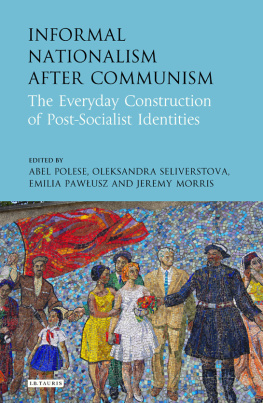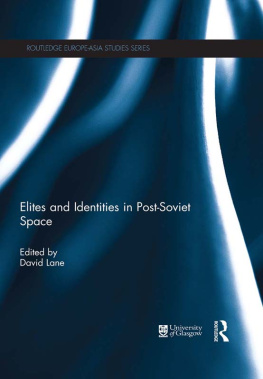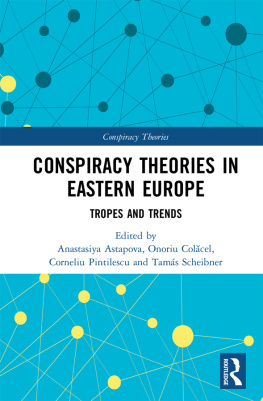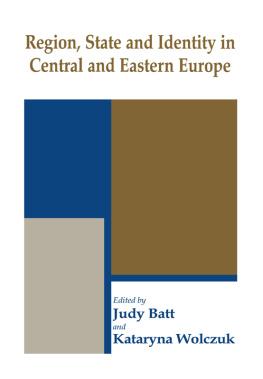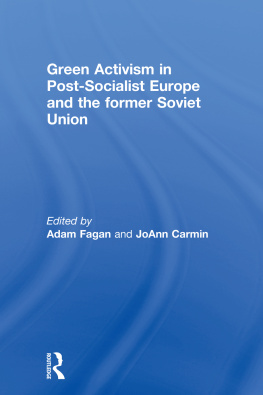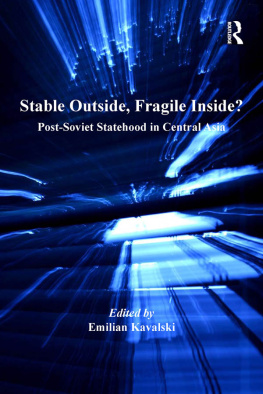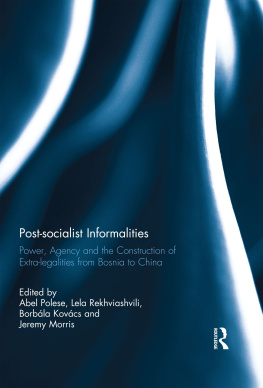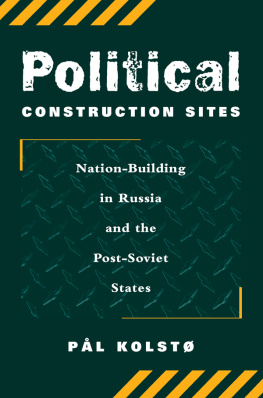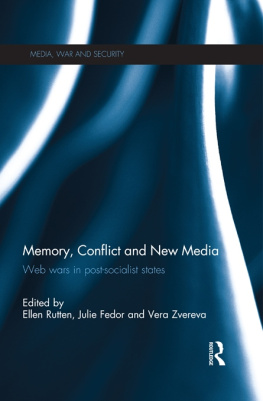Abel Polese is a scholar, development worker and writer. To date he is the author of 15 books, over 100 peer-reviewed chapters and articles and has designed capacity building and training programmes on the Caucasus, Central Asia, Eastern Europe, Southeast Asia and Latin America (funded by, inter alia, the EC, UNDP, Erasmus National Agencies and Irish-aid). His forthcoming book The Scopus Diaries: The (Il)Logics of Academic Survival is also a blog and is intended as a guide to think strategically of ones academic career.
Oleksandra Seliverstova is Junior Researcher at the Department of Political Science at Vrije Universiteit Brussel and a Marie Curie Fellow at the Institute of Governance, Law and Society at Tallinn University. In her PhD research she focused on exploration of everyday nationalism and bottom-up nation-building through consumer culture in multi-ethnic societies. In 2008 she received her MA in Eastern European Studies from the Free University Berlin, where her research focused on ethnic conflicts in post-Soviet areas. Her BA in Business Administration was awarded by the International Christian University, Kiev in 2005. Between 2005 and 2006 she worked as a teaching assistant at the Institute of Theology and Liberal Arts, in Odessa (Ukraine). For several years she was engaged in the NGO sector in Ukraine and worked as a research assistant.
Emilia Pawusz is Early Stage Researcher in the Marie Curie ITN programme at the School of Governance, Law and Society at Tallinn University. She obtained her MA in sociology and social anthropology in 2011 from the Jagiellonian University of Krakow, Poland. Between 2012 and 2014 she was a visiting researcher within the Swedish Institute Visby Programme at the Centre for Baltic and East European Studies at Sdertrn University, Sweden. Her fields of interest include Baltic choral singing, nation-building in Central and Eastern Europe and visual anthropology.
Jeremy Morris is a social anthropologist working on societal and cultural issues in post-socialist Eastern Europe. Having written extensively on contemporary Russian culture in the past, his current research is focused on ethnographic and interpretive approaches to understanding actually lived experience in Eastern Europe and the former Soviet Union. He has recently received research funding to investigate the negotiation of worker identity under post-socialism (British Academy 201011).
This is an extremely interesting book which fills an important gap in the existing literature. The well-selected and inventive chapters cover a wide and diverse range of interrelated subjects and contribute clearly to shedding necessary light onto nation-building processes in the post-socialist area. The editors have managed to draw together a strong mix of junior and more senior scholars, and the book engages with current and relevant research in the field throughout.
Filippo Menga, Lecturer in Human Geography,
University of Reading
What happens when post-socialism meets the everyday? This book is the answer. An excellent collection of studies showing the pluri-faceted nature of identity and how it may be performed by different actors in a variety of ways regardless of, or even in contrast to, state official narratives.
Marcello Mollica, Associate Professor of Cultural Anthropology and
Ethnology, University of Messina
This edited volume brings together different views on post-Socialist identity from an everyday perspective. Going beyond the common state-centric approaches, contributors demonstrate the centrality of the individual and everyday practices in identity construction and reconfiguration. In the process, they break new ground and shed important light onto how these processes have (re)shaped identity markers in the post-Socialist region. This will be stimulating reading for a broad audience.
Maria Raquel Freire, Jean Monnet Chair, University of Coimbra

Published in 2018 by
I.B.Tauris & Co. Ltd
London New York
www.ibtauris.com
Copyright Editorial Selection 2018 Abel Polese, Oleksandra Seliverstova, Emilia Pawusz and Jeremy Morris
Copyright Individual Chapters 2018 Timofey Agarin, Marharyta Fabrykant, Elizaveta Gaufman, Rayna Gavrilova, Jeremy Morris, gnes Patakfalvi-Czirjk, Tamara Pavasovi Trot, Emilia Pawusz, Abel Polese, Lga Rudzte, Oleksandra Seliverstova, Dilyara Suleymanova, Petra tastn and Csaba Zahorn
The right of Abel Polese, Oleksandra Seliverstova, Emilia Pawusz and Jeremy Morris to be identified as the editors of this work has been asserted by them in accordance with the Copyright, Designs and Patents Act 1988.
All rights reserved. Except for brief quotations in a review, this book, or any part thereof, may not be reproduced, stored in or introduced into a retrieval system, or transmitted, in any form or by any means, electronic, mechanical, photocopying, recording or otherwise, without the prior written permission of the publisher.
Every attempt has been made to gain permission for the use of the images in this book. Any omissions will be rectified in future editions.
References to websites were correct at the time of writing.
International Library of Historical Studies 111
ISBN: 978 1 78453 941 2
eISBN: 978 1 78672 396 3
ePDF: 978 1 78673 396 2
A full CIP record for this book is available from the British Library
A full CIP record is available from the Library of Congress
Library of Congress Catalog Card Number: available
To our families
CONTENTS
Abel Polese, Oleksandra Seliverstova, Emilia Pawusz and Jeremy Morris
Dilyara Suleymanova
gnes Patakfalvi-Czirjk and Csaba Zahorn
Tamara Pavasovi Trot
Marharyta Fabrykant
Elizaveta Gaufman
Petra tastn
Rayna Gavrilova
Timofey Agarin and Lga Rudzte
Abel Polese, Oleksandra Seliverstova, Emilia Pawusz and Jeremy Morris
LIST OF ILLUSTRATIONS
Figures
Croatia at the contact of three cultural-civilizational circles: Central Europe, the Mediterranean, Southeast Europe (Tima 2015:23).
Natural population growth of Serbia (Stamenkovi and Gatari 2015:73).
Forced migrations of Serbs from Croatia in 1995 (Stamenkovi and Gatari 2015:74; the same picture appears in Miloevi and Brankov 2015:62).
, AntiMaidan public page Translation: We are like three sisters in one flat.
Tables
Four Waves of Nation-building Studies and Four Different Interpretations in Scholarly Debates
Summary of Identity and Nationhood Messages Found in Serbian and Croatian Fourth-grade Nature and Society and Eighth-grade Geography Textbooks
Lyrics from the song Naa sudbina
LIST OF CONTRIBUTORS
Timofey Agarin is Lecturer in Politics and Ethnic Conflict at Queen's University Belfast, Northern Ireland. His research interest is ethnic politics and their impact on transition from communism and particularly on the interplay of nation-state building with social and institutional change. In the past he has looked at the dynamic relations between national identity, minority issues and ethnic conflict across the post-communist region. Using the cases of institutions tasked with minority protection, he investigates how democratising states cooperate with one another as well as with international organisations to reduce ethnic tensions domestically and ensure peace and stability across the post-communist region. He is the Director of the Centre for the Study of Ethnic Conflict at Queen's University Belfast, Chair of IPSA Research Committee Politics and Ethnicty and Convenor of PSA Standing Group on Ethnopolitics.

